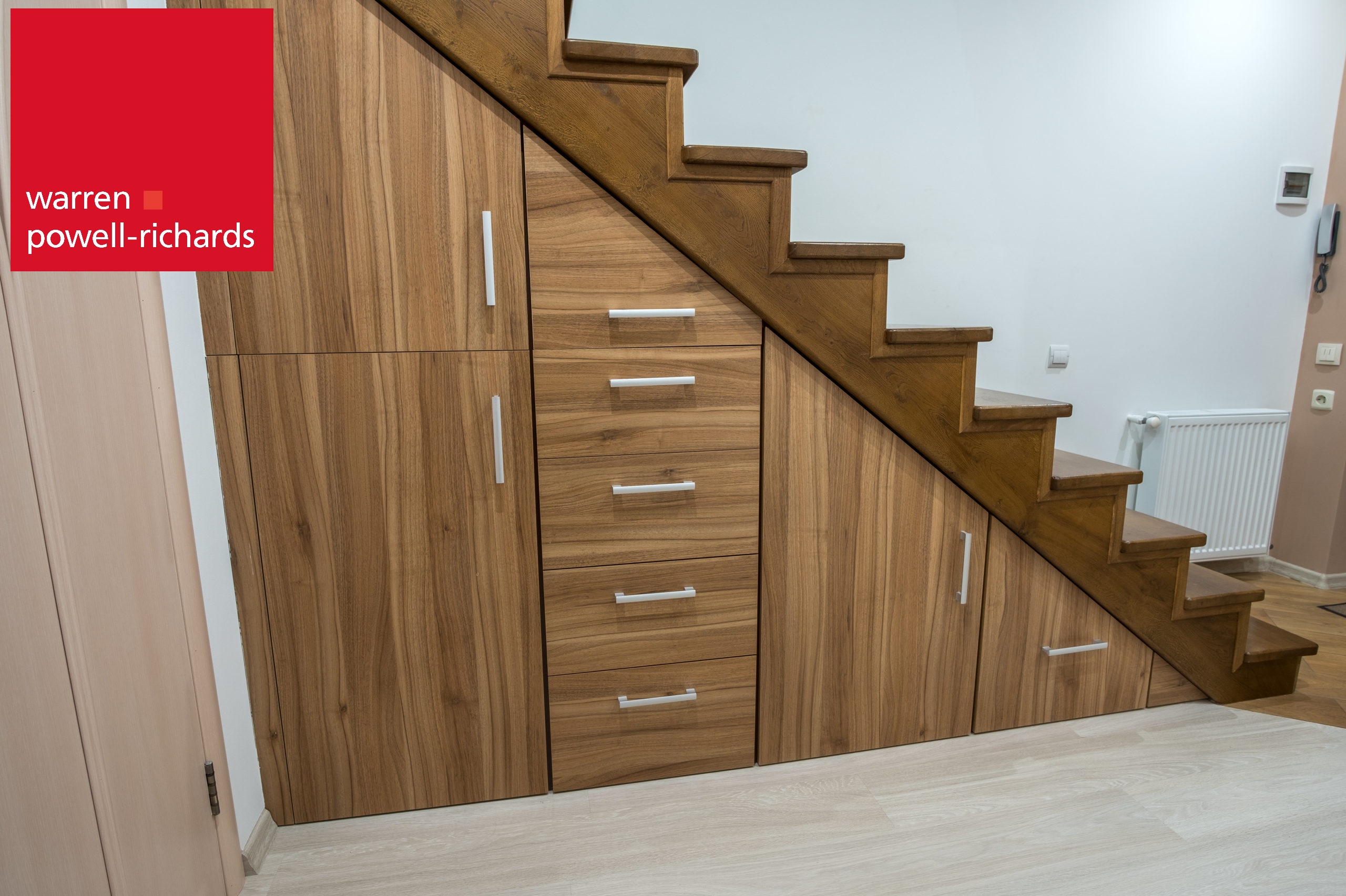Blog
- Details
- Hits: 406
7 Small Space Gardening Ideas

As the summer months creep up on us, those with properties with small outside spaces are bound to be eager to make the most of them!
So, here are seven tips on how to maximise even the smallest of gardens.
Create a Herb Garden
Herb gardens are a great place to start for beginner gardeners with only a small amount of space.
Herbs require very little room to flourish, so they can happily be planted on balconies or even window boxes. Essentially, any area that receives at least 6 hours of sunlight per day permits you the space to grow a beautiful herb garden.
Herbs taste and appearance are altered by fertiliser, so this should be omitted from the soil. These are straightforward to grow though; a daily watering is enough for the plants to thrive. Additionally, herbs are incredibly tolerant to changing and cooler weather conditions, making them perfect for our unpredictable British seasons.
Sage, Parsley and Mint are three of the easiest to grow herbs. Conversely, Basil does not cope well in windy conditions, and therefore should only be planted where it can be afforded a great deal of shelter.
Use Mirrors in Your Garden
Mirrors can be used in the garden to create the same illusions we use them for inside our homes. They are also a fun way to add a distinctive design and personal flair to your outside area.
Attaching a mirror to one side of the fence can completely transform your garden. It gives the impression of a much larger space but also bounces the light around magically.
Divide Your Garden into Sections
If you are lucky enough to have a garden but lack the size you desire, creating designated areas can give the sense of a bigger space.
Ensure there is somewhere for relaxing, adding quality and well-fitting garden furniture. Overcrowding with chairs that are too large will make the garden feel more cramped and render the space useless.
Create a purposeful planting section. If you want to grow fruits and vegetables, use raised beds that all sit at different heights. This allows you to make the most of your space and looks incredibly stylish.
Add Hanging Baskets
For those who lack a massive amount of space, hanging baskets are a great way to add a splash of colour.
Petunias look particularly beautiful and can be used to frame doors and windows. Providing the basket is sturdy and has sufficient drainage, your Petunias will look fantastic with very little upkeep.
Hanging baskets can also be used to grow fruit and vegetables as a fun alternative for those who lack a traditional garden. Obviously, they are only appropriate for specific food items, but strawberries, tomatoes and small peppers can be grown happily in a hanging basket that receives plenty of sunlight.
Grow Plants Vertically
Growing vertically is the best way to garden in a very tight space. Attaching trellis or pots along the balcony or garden perimeter will maximise the number of plants and flowers your small area will permit.
Climbing plants such as Wisteria and Honeysuckle look stunning but can also offer a great deal of privacy for your outside space.
Attract Wildlife to Your Garden
Just because you don’t have an enormous garden doesn’t mean you can’t build one that attracts the local wildlife.
While there may not be enough space for an elaborate birdbath, there is more than likely enough room to hang a bird feeder, which will attract plenty to your outdoor area. Most of these feeders have a rim around the bottom for the birds to perch, meaning you do not have to build any other resting area.
Alternatively, consider hanging a bee hotel. These provide a sustainable nesting option for bees, a crucial part of the ecosystem in the UK.
For small gardens, allow wildflowers to grow around the perimeter. These look stunning and are a hassle-free way to inject colour into a small space. However, they are also great for insects, creating an ideal habitat.
Make Use of Communal Spaces
City centre living is becoming ever more popular, which usually comes at the sacrifice of outside space.
However, many blocks of flats are home to some form of communal outdoor area. This might be a shared garden or even a rooftop terrace.
Speak with your neighbours and consider how you can best use the space. It is unlikely you will be able to make any permanent changes; however, potted plants and vegetable beds can make a huge difference.
This will dramatically change the appearance of this communal area and be sure to bring the neighbourhood closer together.
Do you dream of a larger garden? Warren Powell-Richards are your local property experts and we can help you find your dream home.
- Details
- Hits: 381
How to Know if You’re Emotionally Ready to Sell Your Home

Selling your home is a huge deal. Naturally, we can feel very attached to where we live. The walls of our home often hold special memories and all the things we love. The selling process can be challenging, not just because of the paperwork, but because it means saying goodbye to your home long before you’ve left. The process can be emotional and you need to be ready before you fully commit.
At Warren Powell-Richards, we can help make the sale as stress-free as possible. But before you decide to sell, here are our tips on how to know if you’re emotionally ready to sell your home.
- You’re prepared to declutter
Unless you’re a minimalist, you probably have lots of things in your home that are special to you. The most important thing to do before selling your home is to stage it for a sale. This often means getting rid of the clutter and stripping out your quirks to make it neutral and attractive for buyers. While moving some pictures into a cupboard might be a painless task, painting a room or selling your beloved furniture can feel much more permanent. Before selling your home, you need to be ready to neutralise and maybe even get rid of the possessions you love that you can’t take with you.
- You daydream about living somewhere else
Are you imagining your future somewhere else? Do you find yourself excitedly daydreaming about it every spare minute you have? If the answer is yes, it’s highly likely that you’re emotionally ready to sell your home. Once you start staging your home for buyers, you’re already saying goodbye. Even though the thought of selling may be sombre, if you’re making plans for new furniture and you’re looking forward to living somewhere else, then this is a definite sign that you’re emotionally ready to sell.
- You’re ready to accept buyer feedback
If you plan to show people around your home yourself, you’ll likely overhear lots of things. Although some people will be discreet about any distastes, many won’t. Viewers may overtly cringe at your décor or openly criticise some of your home’s best features. Prospective buyers might express their desire to rip apart the kitchen you lovingly designed or tear down your living room walls the minute they buy it. If you’re ready to accept that those things will happen in your home, and you’re prepared to hear this feedback, then the selling process will be much easier for you.
- You feel ready to say goodbye
This is one of the biggest signs that you’re ready to sell up. Committing to sell means committing to leave. If you’re prepared to say goodbye and the thought of leaving excites you, then you’re definitely ready!
We’re here to help
At Warren Powell-Richards, we understand that selling your home can be emotional. We’re here to help you every step of the way.
Contact us today for a friendly chat about our services.
- Details
- Hits: 736
Struggling To Sell? How To Turn House Viewings Into Solid Offers

We know that it can be very frustrating for homeowners if your house has been on the market for a while without attracting any offers.
If this sounds familiar, here are a few common pitfalls that could be preventing potential buyers from making an offer on your home, and how you can fix them.
- It’s Overpriced
A common mistake among homeowners is to want to overprice their home deliberately with the intention of letting a buyer haggle so they can get the true asking price that they’ll be happy with.
The biggest issue with this is that when a property is overpriced it excludes a number of potential buyers. For example, a buyer with a £300,000 budget won’t spot a property that’s on sale for £310,000, even if £300,000 is the figure that the homeowner would actually be happy to accept.
It’s far better to allow your estate agent to price the property realistically in the first place!
- It’s Lacking Kerb Appeal
Be honest with yourself, does your property look attractive from the outside?
Research has found that a lot of buyers make their mind up about a property before they even step through the front door, so if your home is looking tired and worn on the outside, then it could be putting buyers off.
You don’t need to spend a fortune to improve the kerb appeal either. Just putting a couple of hanging baskets up and making sure the window frames are clean can make a big difference.
It could even be something as simple as cutting the front lawn or moving the wheelie bins so they’re not directly on show.
- It’s Not Being Marketed Properly
Let’s face it, most buyers will go online at the start of their property journey, utilizing social media, estate agents websites and property portals such as Rightmove and Zoopla.
Your estate agent should be advertising your property across a wide variety of media, both online and offline to ensure you are reaching a rounded audience.
Check with your estate agent that your property is being listed to its full potential. If it’s not, then it may be time to find a new agent!
- It’s Cluttered
Few things are as off-putting to a potential buyer than a house that’s packed full of clutter.
Buyers want to imagine themselves living in the property, so even though you’re still living there, make sure it’s as clean and tidy as possible before any viewings take place.
As much as possible you should be aiming to give buyers a blank canvas to work with so they can picture where their own furniture and possessions might go, so keep it tidy.
- You’re In a Long Property Chain
If you’re moving into a property that’s part of a long chain this could be enough to deter some buyers.
Although this usually can’t be helped, if there’s anything you can do to get out of the chain, such as renting a property in the short-term while you wait for your purchase to go through, then it may be worth considering – especially if you’ve been struggling to sell for months.
- Buyers Aren’t Seeing Its Full Potential
When you’re living in a property day to day it can be easy to forget how appealing it might be to a fresh set of eyes. It’s vital that your property is working as hard as it can for you to be sold.
For example, if you’ve been granted planning permission for an extension but you haven’t gone through with it, make sure your estate agent is aware. Similarly, if your neighbours have been granted planning permission with no problems then let your estate agent know about it.
These might seem like insignificant details to a seller, but to a buyer who’s trying to imagine the property in 5-10 years’ time, it’s great information to have.
And it’s not just big things like extensions either. Make sure your property is being displayed in its best possible light by making some subtle changes. Whether that’s using bright and airy colours to redecorate, or hanging up a mirror to make a room feel bigger, some minor changes can make a major difference.
- It’s Poorly Maintained
It’s easy to let things slide at home, particularly if the issues aren’t causing you any major headaches.
However, buyers will usually notice the little details that you have learned to ignore, such as a missing pane of glass, a wonky fence post or over-flowing gutters. Seemingly minor issues like these can be enough to put some buyers off, because they suggest that there could be bigger issues lurking too, even if you know there aren’t.
So before your next viewing, just make sure all those little odd jobs and easy fixes are completed, as they could be making a bigger difference than you realise.
Is your home up to scratch and ready for market? Let us advise you. Warren Powell-Richards are your local property experts.
- Details
- Hits: 416
5 Ways To Add Value To Your Property

For homeowners looking to add value to their property, house extensions and renovations are pretty much guaranteed to do the job.
But what if you’re a homeowner without the time and/or budget to invest in a full-blown extension?
We often get landlords asking us this very question: how can I add value to my property with minimal effort and a limited budget? So, the team at Warren Powell-Richards have put our heads together and come up with seven easy ways to do just that.
Here’s how to increase your property value without breaking the bank or investing too much time:
- Start by focusing on your kitchen
The kitchen is known as the ‘heart of the home’ for a reason. It’s the room we all tend to spend the most time in when we’re at home. This is why potential buyers value it so much. If your budget only stretches to one single property improvement, make it the kitchen. A great kitchen can add as much as 4% to the value of your home, and a dated kitchen can easily turn buyers off.
Here are some easy kitchen improvement ideas that can add value:
Invest in modern worktop surfaces – check out Pinterest for some kitchen worktop inspiration
Get new kitchen tiles – be bold and opt for a few more striking patterned tiles to create a statement backsplash
Paint your cupboard doors
Swap the cupboard door knobs for quirky ones
Yes, they’re all small changes. But together, they can really help to spruce up a tired looking kitchen!
- Add more storage space
Never underestimate the appeal of lots of storage space for home buyers.
This is the one thing that we notice time and time again – buyers can easily be turned off a property if they discover that there just isn’t enough storage space.
So, how do you deal with this issue if you simply haven’t got the space?
Here’s how to add extra storage to your home when space (and budget) is limited:
Make use of all that space on blank walls by building shelves. Shelves are much easier to put up than you might think!
Work out what you can do with any unused nooks and crannies. For instance, the dead space underneath your stairs. Could you add a cupboard there?
No idea where you can add extra storage and exhausted all your options? Study the layout of your property layout, and you may just discover dead space you didn’t even realise existed.
- Make your home more energy efficient
In this eco-conscious day and age, more and more home buyers are interested in finding out how energy efficient a property is before they invest in it. This doesn’t just stem out of concern for the environment though. An energy-efficient home can also save you a considerable amount on energy bills.
Landlords, make your home more energy-efficient and you’ll instantly make your property more appealing to many renters. Here’s how:
Make sure all windows and doors are double glazed for effective insulation
Invest in a heating system with easily adjustable settings so that comfortable temperatures won’t mean racking up bills
Choose an eco-friendly paint brand for any decorating jobs
Invest in LED lights and solar panel heating
These improvements come at a cost, but they’ll benefit your wallet, and our planet, in the long term.
- Create a more open-plan home
Working with a smaller property? Create the illusion of more space by knocking down a few walls. Do this effectively, and you could boost the value of your property without any extensions. Modern buyers are attracted to open-plan layouts, which can make a smaller flat or house look more spacious and make it easier for them to move around.
Don’t attempt this yourself though. We recommend consulting a local residential architect who can show you how to do this to maximise the space in your property.
- Find out what home movers in the area are looking for
Not quite sure where to start? Have a chat with our team at Warren Powell-Richards as we know your area! We have a good understanding of what home movers in your neighbourhood are interested in.
We can also help with recommendations of local suppliers that can offer you great deals on any small renovations and extensions that can add value.
Give us a call today and a member of our friendly and experienced team will be happy to speak with you further. Alternatively you can email us at This email address is being protected from spambots. You need JavaScript enabled to view it..
- Details
- Hits: 397
5 Things Tenants Want From a Rental Home

The wish list for tenants is ever-growing. As the rental market becomes even more competitive, people are looking for more features in a rental than just a good location and a clean property. Using our expertise here at Warren Powell-Richards, we’ve come up with the five things that tenants want from a rental.
- Ample storage space
Storage space is one of the most desirable features for any home nowadays. New builds are prioritising storage in their designs as a standard practice. If your rental is an older building, then it’s likely that built-in storage is in limited supply. To attract tenants, consider providing them with access to the loft or a garden shed. If this isn’t available, you could supply a small wardrobe or set of drawers, or even invest in a built-in storage cupboard that can be squeezed into a hallway or living room.
- Home office space
Remote working is soaring in popularity. Naturally, this means that home offices are becoming more and more desirable for renters and buyers. People are even selling their homes to find better remote working spaces! Even if you don’t have a spare room, there are other ways to capitalise on space. Can you squeeze a desk in a living room, hallway or even under the stairs? Measure up and see where a home office can fit in. To make it obvious to tenants that they could work in your property, you could even provide a desk as part of the furnishings.
- A decent landlord
This might go without saying since no one has ever wanted a bad landlord. But with people leaving employers that don’t respect them, this trend could quickly move to landlords. High-quality tenants might not want to stick around once the initial term is up if you aren’t communicating with them or being reasonable in what you provide to them.
- Security
The crime rates in the area surrounding your property are completely out of your control. But people do want to feel safe and secure in their home. Regardless of the local crime rates, adding an alarm or another security feature can be highly cost-effective and will increase your chances of attracting great tenants.
- Pet-friendly policies
Remote working is still on the rise. This means that people have more time for pets. Agreeing to pets in your rental can help you attract good tenants that stick around for longer. Plus, the younger generation isn’t just opting for furry friends. Gen Z will be looking for landlords that let them have their micro tortoises, geckos and snakes stay with them. Since they are usually no trouble at all, it’s even more reason to approve of animals!
Attract great tenants with our help
At Warren Powell-Richards, we can help you attract and retain excellent tenants. For more advice on how to get the best tenants, get in touch with us today or via email at This email address is being protected from spambots. You need JavaScript enabled to view it..





ALTON | FARNHAM | GODALMING | GRAYSHOTT | HASLEMERE | LONDON